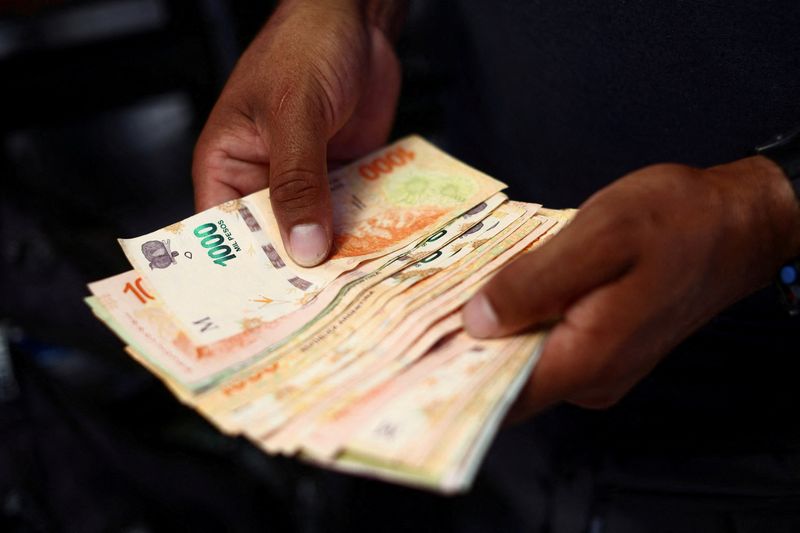Investing.com’s stocks of the week
By Eliana Raszewski
BUENOS AIRES (Reuters) -Argentina's December inflation rate will "clearly be substantially higher than in November," Economy Minister Luis Caputo said in a televised interview on Wednesday, as Javier Milei's newly elected government grapples with an economy in crisis.
The Latin American nation's monthly inflation hit 12.8% in November alone, the highest monthly figure this year, according to statistics agency data released earlier in the day.
On Tuesday, Caputo announced a slate of economic measures including a more than 50% devaluation of the peso to 800 per U.S. dollar and energy and transportation subsidy cuts.
The energy subsidy cuts could start in February or March next year, Caputo said in the interview with local television channel Todo Noticias.
Markets cautiously welcomed the "shock" measures, as Argentina's country risk edged down and the gap narrowed between the official peso exchange rate and its alternatives.
Caputo described the market reaction as "an enormous vote of confidence."
Libertarian Milei warned in his Sunday inauguration speech that a monthly inflation rate of 20% to 40% was expected from December to February.
Milei is looking to steer Argentina's economy back on track as the country faces sky-high consumer prices, reserves in the red and a $44 billion loan program with the International Monetary Fund (IMF).
Caputo said the government was working to overhaul the IMF agreement, as the previous administration had missed the loan's mandated targets.
He added that Argentina would make its payment due to the IMF on Dec. 21, when, according to the fund, the country owes about $913 million.
He did not specify how Argentina would meet the deadline. The country has previously tapped a currency swap with China's central bank and a loan from Qatar to pay the IMF.
"We're doing things right," Caputo said. "A credible fiscal anchor, plus what we're doing to the exchange rate and what the central bank announced, will stabilize (the economy)."
Argentina's central bank early Wednesday held its benchmark interest rate at 133% and imposed a "crawling peg" to weaken the peso by 2% monthly.
